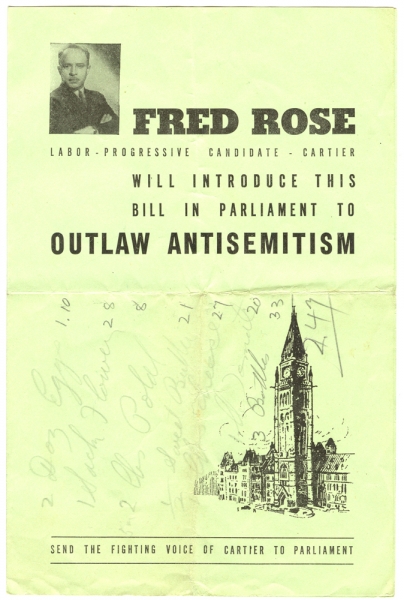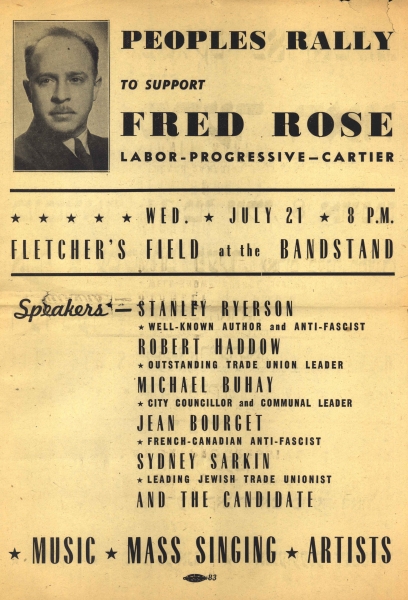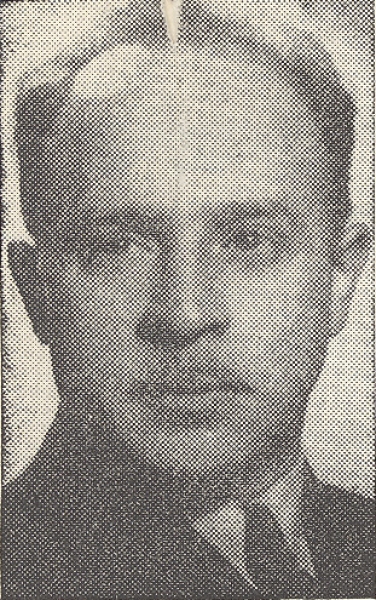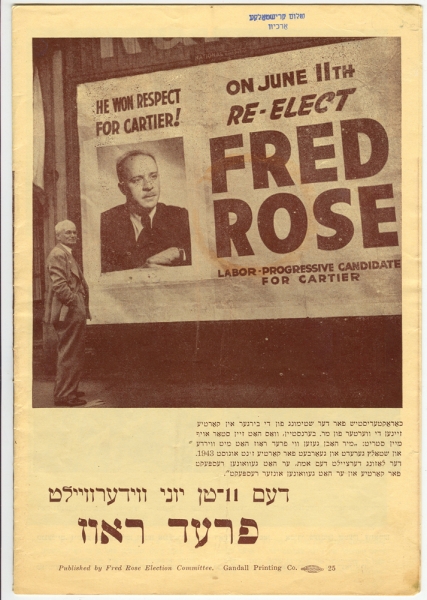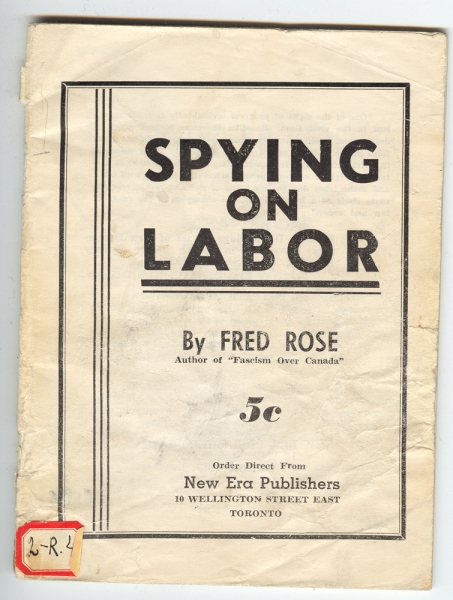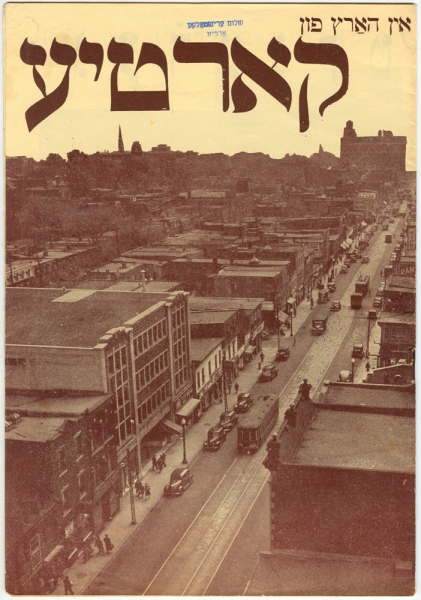Fred Rose - Labor Progressive Party
1945 - 1945
254 St-Catherine E.
Fred Rose (né Rosenberg) was a Communist Member of Parliament, a trade union organizer, and a convicted spy for the Soviet Union. Born in 1907 in Lublin (now Poland), Rose immigrated to Canada with his family in 1916. As a young adult, he worked at factories as an electrician, and joined the Young Communist League in 1924.
During the Depression, support for communism grew in Montreal, setting the stage for Rose’s turn to politics following his 1931 conviction and year-long imprisonment on charges of sedition. As a candidate for the Communist Party of Canada (CPC) in the 1935 federal election, Rose took second place in the working-class and immigrant riding of Cartier. Before he could attempt election again, the Communist Party of Canada was banned in 1940, reappearing two years later as the Labour Progressive Party. Under this new heading, Rose ran in a 1943 by-election for Cartier—whose population was nearly 60 percent Jewish—against (Liberal Bronfman ally) Lazarus Phillips, and David Lewis of the Co-operative Commonwealth Federation (CCF). Rose defeated the only non-Jewish candidate, Paul Massé of the Bloc Populaire, by only 261 votes. His win was particularly interesting considering that only one year earlier he had published a well-documented and damning pamphlet called “Hitler’s Fifth Column in Quebec,” accusing the Duplessis regime of “clerico-fascism”. This raised the ire of Montreal’s future mayor, Jean Drapeau, who sued Rose for libel. Nonetheless, Rose’s 1943 election was successfully followed with his re-election in 1945.
Rose is best known as the sitting Member of Parliament who was arrested on charges of conspiracy with the Soviet Union. In September 1945, Soviet Embassy clerk Igor Gouzenko defected in Ottawa, offering 109 classified documents to the RCMP in exchange for asylum. In early 1946, Prime Minister Mackenzie King set up the Royal Commission under the Inquiries Act to investigate Gouzenko’s claims. Twenty espionage trials resulted in a dozen convictions, including that of Fred Rose in 1946. Rose’s trial attracted international attention, and Gouzenko’s defection is thought by some historians to have marked the beginning of the Cold War.
Rose, who maintained his innocence, was released from prison in 1951, but found it difficult to live with the extensive surveillance of his comings-and-goings by the RCMP. In 1953, he moved to Poland and his Canadian citizenship was revoked in 1957. Despite his desire to return to Canada, Rose lived out the remainder of his life in Poland, dying in 1983.
Compiled by Sarah Woolf.
Links
Liens
Jewish Public Library Archives—Jewish Montreal of Yesterday: Fred RoseThe Canadian Encyclopedia - Fred Rose
The Canadian Jewish Heritage Network - Fred Rose
Sources
Igor Gouzenko, Russian Spy Buster on Seven Days. Perf. Igor Gouzenko, Laurier LaPierre, and Patrick Watson. This Hour Has Seven Days, 1966. Television. CBC Digital Archives. Canadian Broadcasting Company, 5 March 2008. Web. Obituary of Fred Rose, Soviet Spy. Perf. Jim Sunstrum and Merrily Weisbord. Saturday Report, 1983. Television. CBC Digital Archives. Canadian Broadcasting Company, 19 Nov. 2004. Web. Clément, Dominique. “Gouzenko Affair.” Canada’s Human Rights. History. Levy, David. Stalin's Man in Canada: Fred Rose and Soviet Espionage. New York: Enigma, 2011. Nulman, Stuart. Beyond the Mountain : True Tales about Montreal. Kirkland: Callawind, 2002. Tulchinsky, Gerald J. J. Branching out : the Transformation of the Canadian Jewish Community. Toronto: Stoddart, 1998. Weintraub, William. City Unique : Montreal Days and Nights in the 1940s and '50s. Toronto: McClelland & Stewart, 1996. Images courtesy of ADCJA and JPL-A.


This project is funded in part by the Government of Canada.
Ce projet est financé en partie par le gouvernement du Canada.
Ce projet est financé en partie par le gouvernement du Canada.
This project is funded in part by the Government of Canada.
© 2011-2015 Museum of Jewish Montreal, All Rights Reserved.
Site by Air Code Design inc. ![]()
© 2011-2015 Musée du Montréal Juïf, Tous droits réservés. Site par Air Code Design inc. ![]()
